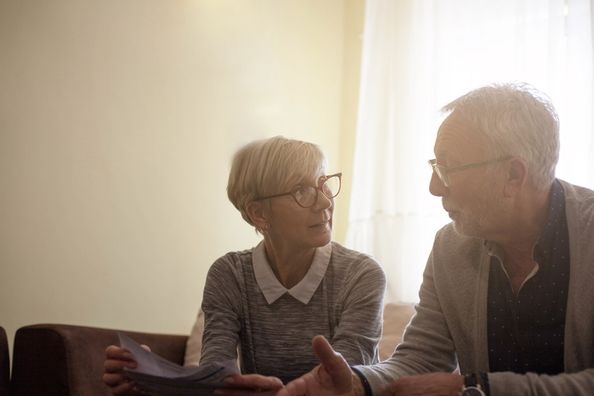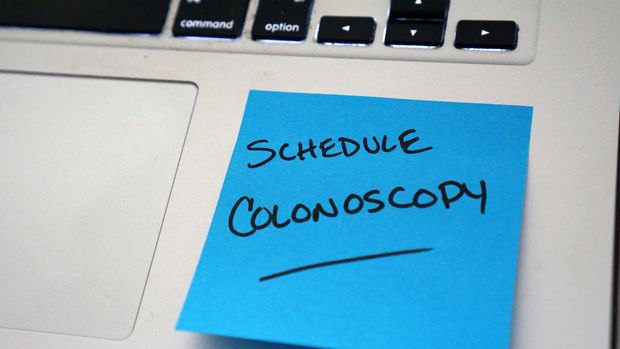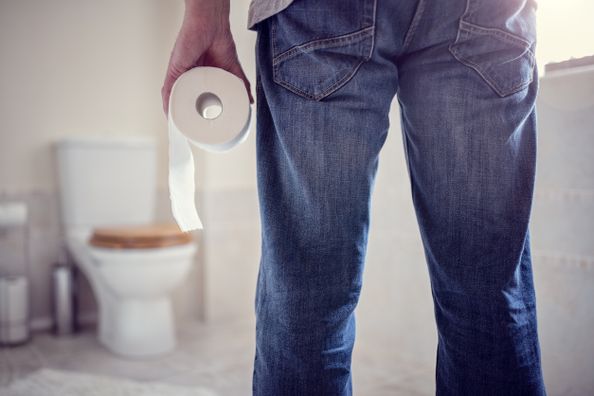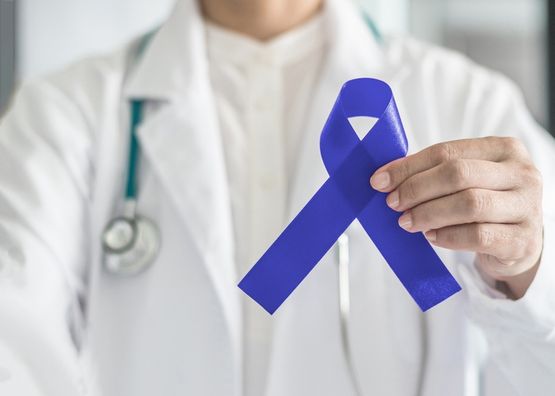It’s no secret that completing preventive screenings, like a colonoscopy, significantly lowers your risk of developing (or dying from) colorectal cancer. Despite this, colorectal cancer remains one of the leading causes of cancer-related deaths among both men and women in the United States today. Staying up-to-date with preventive screenings is especially important for colorectal cancer because it is slow-forming and often has no symptoms until it has progressed to an advanced stage. Completing a colonoscopy helps to detect (and remove) any pre-cancerous or cancerous growths that may have developed within your colon as early as possible.
If you are at an average risk of developing colorectal cancer, you should complete a colonoscopy when you turn 45. Those at a higher risk may be advised to start screening earlier or more frequently. Even though it has been proven to be an extremely effective way to prevent colorectal cancer, nearly a third of eligible adults have not completed their colonoscopy. To encourage you to complete your screening, our board-certified Gastroenterologists offer their reBUTTals to some of the most common excuses used to delay getting a colonoscopy.
Excuse #1 — I feel fine.
Most people with colorectal cancer (or pre-cancerous polyps) don’t know they have it. In most cases, polyps can go undetected for years and can take as many as 10 to 15 years to become cancerous. Colorectal cancer can also develop undetected, as symptoms gradually appear only when the cancer has reached a more advanced stage.
During a colonoscopy, your gastroenterologist closely examines your large intestine and removes any polyps found BEFORE they have had a chance to progress. Removing these abnormal growths preventively saves you from developing colorectal cancer in the future. If undetected polyps advance to colorectal cancer, over time it can cause symptoms such as changes in your bowel habits, rectal bleeding and weight loss.
Excuse #2 — I don’t have time.
A colonoscopy (including the procedure prep) typically only requires you to miss one day of work. The actual procedure, from the moment you enter the facility to the moment you leave, can be completed within a few hours. During that time, any polyps that are found are removed and are sent to a pathologist for further evaluation. Pathology testing is done quickly, often providing you with a better understanding of your digestive health in as little as a day or two.
On the other hand, treating colorectal cancer requires frequent check-up appointments with a medical oncologist and other specialists, as well as appointments for treatments including chemotherapy and/or surgery. Depending on the stage of the cancer, your overall health and response to treatment, these appointments can span months and, in some cases, years. Taking a day off of work now to complete your colonoscopy not only can have a lasting impact on your health, it can save you a significant amount of time in the long-run.
Excuse #3 — I don’t want to do the pre-procedure prep.
Many people delay their colonoscopy because they are anxious or unsure about the pre-procedure bowel cleanse. While you may want to skip this step, it’s necessary. It provides your gastroenterologist with a clear view of your intestine to better detect any polyps that may have formed. While you may have heard less than rave-reviews about the prep solution, it’s come a long way since it was originally introduced. Now, the amount of the solution you’re required to drink is less and is taken in two separate doses. Splitting the dose can significantly reduce many of the previously-reported side effects including bloating and nausea. The taste and texture of the solution has improved as well. Using a chilled glass or a straw and mixing the prep solution with clear juices, sodas or sports drinks can also help.
Excuse #4 — Can’t I just submit a stool sample?
Stool sample tests have become more commonly promoted as an easy, noninvasive screening option for colorectal cancer. Traditionally, these tests were used to detect small amounts of blood within your stool. While it is effective in detecting the presence of blood, the test isn’t always a reliable way to detect cancer, its success rate is around 70 percent. This is because blood in your stool may be caused by several non-cancer related conditions and it isn’t able to detect polyps. If your stool sample is positive for blood, you will need to complete a diagnostic colonoscopy to determine the source and check for polyps or other abnormalities within your colon.*
Some newer stool tests not only check for blood, they also evaluate the DNA found in your stool for signs of cancer. This extra step makes them more effective than the older stool sample tests in detecting cancer or precancerous polyps. These newer tests detect approximately 92 percent of cancers and 40 percent of precancerous polyps, however, they are still not as effective as a colonoscopy.
Colonoscopy screenings remain the gold standard for colorectal cancer detection and prevention, boasting an average detection rate of about 95 percent of cancers and precancerous polyps. The key difference here is identifying precancerous polyps and removing them before they have a chance to develop into cancer.
*Many insurance plans cover a screening colonoscopy but may have different requirements for a diagnostic colonoscopy. As with any procedure, it is important to check with your insurance carrier to verify your coverage.
Excuse #5 — It’s too expensive
Medicare and most commercial insurance plans cover the cost for many preventive screenings, including colonoscopies. Check with your health insurance plan for information about your out-of-pocket expenses including co-payments or an annual deductible, and make sure your gastroenterologist and the treatment facility is within your plan’s network. It’s important to keep in mind that out-of-pocket costs associated with a colonoscopy, if any, are significantly less than the cost of cancer treatments, should they be needed.
Whatever your reason has been for delaying your colonoscopy, we encourage you to schedule your potentially lifesaving screening today. For added convenience, you may be able to skip the pre-procedure appointment and complete a free colonoscopy consultation over the phone with one of our skilled nurses. During the call, our staff will provide you with pre- and post-care information and answer any questions you may have. To find out if you are eligible for this service, or to schedule your screening colonoscopy, call our Gastroenterology department at 630−717−2600.
Health Topics:








